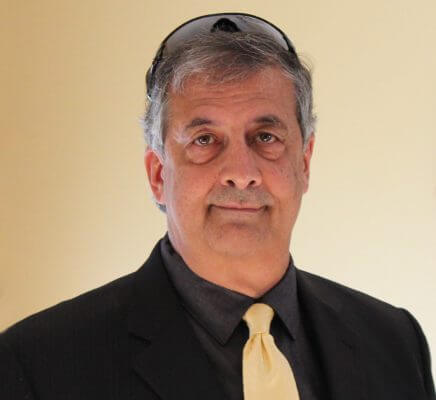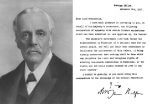Illinois congressional race attracts Arab American vote
Contentious election to represent the 3rd Congressional District in Illinois has energized Arab American voters. But can it trigger an “Arab American Spring?” The race between 7-term congressman Dan Lipinski and newcomer Marie Newman pits traditional conservative Democrats against liberal Democrats in the March 20, 2018 primary election. And candidates for that race and all races have suddenly discovered the growing strength of Arab American voters in Chicagoland’s southwest suburbs
By Ray Hanania

Ray Hanania
Next week, Arab American voters may come of age in the American election system in Illinois’ 3rd Congressional District contest, which pits a strong liberal, Marie Newman, against a strong conservative, seven-term incumbent Dan Lipinski, both Democrats.
This is the first time that Lipinski, whose father held the district for 22 years, is facing a strong primary election challenge. Primaries are American polls in which voters from each party decide who will represent them in the subsequent general election.
Why is it important? Because this district has the largest concentration of Arab Americans in Illinois — a state which ranks sixth in the US in terms of Arab population with 111,484, behind California (324,609), Michigan (223,075), New York (152,675), Texas (124,117) and Florida (112,300), according to data provided by the Arab American Institute. However, these numbers are only estimates based on voter data in which Arab Americans voluntarily identified themselves, because the US Census has refused to place “Arab” on its decennial census forms as they do for 22 other ethnic groups.

Lipinski is a conservative Democrat, often self-described as a “Reagan Democrat.” Newman is a liberal Democrat, often self-described as a “progressive.”
Despite the district’s large Arab population, Lipinski has been courteous but distant from them. In February 2014, he provoked their anger by co-sponsoring legislation with anti-Arab Republican Congressman Peter Roskam, which proposed punitive measures for any educational institution that supported a boycott of Israel. The Roskam-Lipinski bill is a violation of Americans’ Constitutional right to free speech. But, as we know, Israel maintains strong influence in US politics, while Arabs do not.
The Arab American population is estimated at 3.5 million, both Christian and Muslim (although I believe those numbers are higher, at 4.5 million), while there are an estimated 3.5 million Muslims in America. So how influential can Arabs be? They need only look at the influence of Jewish Americans, whose population is estimated at seven million.
It’s not unreasonable to assume Arabs in America can flex their political muscles to influence elections and foreign policy in the same way that Jewish supporters of Israel flex theirs. That’s why watching the 3rd Congressional District elections in Illinois will be important.
Challenges for Arab empowerment abound. Arabs come from 22 different countries and two religions; they are not homogenous. Most Arabs tend to be “conservative,” although they tend to assimilate into the communities where they live as a defense against racism. Liberal politics do not naturally align with Arab voters, but Newman has actively courted Arab American and Muslim voters in her campaign, while Lipinski has only just started.
Newman is endorsed by many Democratic liberals who actively support the two-state solution, such as Congresswoman Jan Schakowsky of the 9th Congressional District, who is Jewish, and Congressman Luis Gutierrez, who is retiring this year and has endorsed Jesus “Chuy” Garcia to take his place. Garcia, who is expected to easily win the 4th Congressional District next week, has been a long-time activist for Palestinian rights.
Arab Americans can use the March 20, 2018 Democratic primary in Illinois to flex their political muscles in the same way that Jewish supporters of Israel regularly do.
— Ray Hanania, writing in the Arab News
The 3rd District has a long history and conservative base, which Lipinski exploits. Lipinski has the backing of the Chicago Democratic machine, which controls most of that district. Over the years, Lipinski has quietly helped support Muslim institutions, including one of Chicagoland’s first ever mosques in Bridgeview. He has also championed Muslim rights in numerous appearances at Eid celebrations in his district. Lipinski’s support of anti-BDS legislation came as a surprise to many activists, and it has affected Newman’s Arab support.
For Arabs, Lipinski is appealing because he supports the sort of conservative family values they share, opposing excessive abortion policies. But Lipinski has been lax in championing Syrian refugee rights. Newman has criticized Lipinski saying he “shares Donald Trump’s aggression toward immigrants.” She has been outspoken in denouncing Trump’s “Muslim ban,” which has halted all immigration regardless of religion from only six of the world’s 50 Muslim-majority countries.
The Arab community leadership is divided on the race and has divisions over other candidates accused of anti-Muslim rhetoric in the past. In the Democratic race for Illinois Governor, one Arab group is supporting Jewish philanthropist and billionaire J.B. Pritzker while another is supporting Christopher Kennedy, the son of slain Senator and presidential candidate Robert F. Kennedy and nephew of assassinated President John F. Kennedy. Pritzker is accused of slandering Muslims when he ran against Schakowsky for congress in 1998, never apologizing. Meanwhile, Kennedy, in his capacity as chair of the board of trustees of the University of Illinois, has been accused of blocking the hiring of a Palestinian author who frequently criticized Israel in his tweets.
The race has fueled a first-time-ever campaign to win Arab votes in Illinois. Many candidates are buying campaign ads in Illinois’ largest Arab American newspaper, The Future News, published by Christian Jordanian-American Mansour Tadros. The ads are in Arabic and English, while campaign mailers are being sent to Arab voters in Arabic too.
There are similar elections taking place in California, Texas and Michigan, where Arab Americans are challenging the establishment and demanding that elected officials stop taking them for granted. Will Arab American activists succeed in augmenting their voice? Will they initiate an “Arab American Spring” in one of Illinois’ 18 Congressional Districts on Tuesday, March 20, 2018?
I think it is worth the Arab world watching what happens. If there is change, or even if it is only “close,” it will mean the Arab world can invest its money and resources in influencing American elections away from its fundamentally anti-Arab and anti-Muslim core.
(Ray Hanania is an award-winning Palestinian American columnist and author. He is a former Chicago political reporter and now the editor of TheDailyHookah.com. Email him at rghanania@gmail.com.)


Ray Hanania is an award winning political and humor columnist who analyzes American and Middle East politics, and life in general. He is an author of several books.
Hanania covered Chicago Politics and Chicago City Hall from 1976 through 1992 at the Daily Southtown and the Chicago Sun-Times. He began writing in 1975 publishing The Middle Eastern Voice newspaper in Chicago (1975-1977). He later published “The National Arab American Times” newspaper (2004-2007).
Hanania writes weekly columns on Middle East and American Arab issues as Special US Correspondent for the Arab News ArabNews.com, at TheArabDailyNews.com, and at SuburbanChicagoland.com. He has published weekly columns in the Jerusalem Post newspaper, YNetNews.com, Newsday, the Orlando Sentinel, Houston Chronical, and Arlington Heights Daily Herald.
Hanania is the recipient of four (4) Chicago Headline Club “Peter Lisagor Awards” for Column writing. In November 2006, he was named “Best Ethnic American Columnist” by the New American Media. In 2009, Hanania received the prestigious Sigma Delta Chi Award for Writing from the Society of Professional Journalists. He is the recipient of the MT Mehdi Courage in Journalism Award. He was honored for his writing skills with two (2) Chicago Stick-o-Type awards from the Chicago Newspaper Guild. In 1990, Hanania was nominated by the Chicago Sun-Times editors for a Pulitzer Prize for his four-part series on the Palestinian Intifada.
His writings have also been honored by two national Awards from ADC for his writing, and from the National Arab American Journalists Association.
Hanania is the US Special Correspondent for the Arab News Newspaper, covering Middle East and Arab American issues. He writes for the Southwest News newspaper group writing on mainstream American issues.
Click here to send Ray Hanania email.
Follow RayHanania on Gettr.com, the uncensored Twitter Ray Hanania on Gettr, the new Twitter
- Israelisnipers shooting and killing hospital workers in Gaza - December 11, 2023
- CAIR Condemns Israeli Executions of Wounded, Unarmed Palestinian in West Bank - December 11, 2023
- Arab and Muslim American voters face a “simple choice” between Biden’s inhumanity and Trump’s edgy politics - December 9, 2023
























